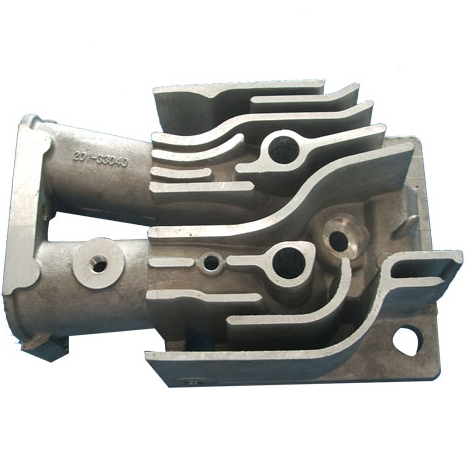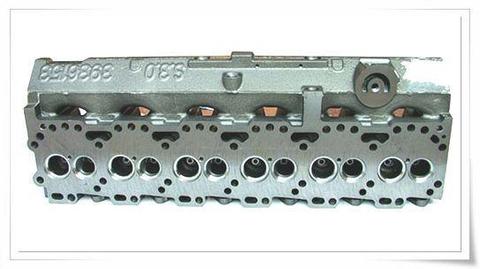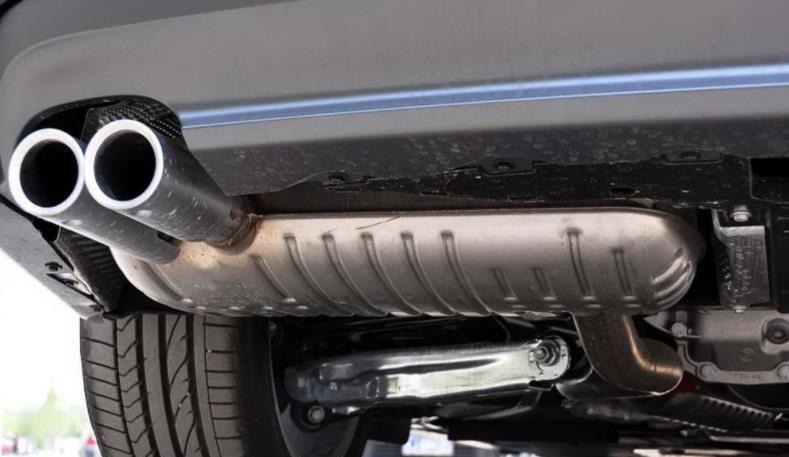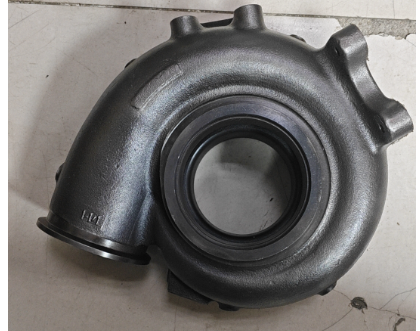What are engine castings?
2025-04-14 16:27:10 hits:0
Engine castings are key components forming the main structure of engines, primarily undertaking functions such as load-bearing, sealing, power transmission, and thermal management. Material selection and structural design must meet requirements for high-temperature, high-pressure, and high-load working environments. As a global professional casting manufacturer, TIEGU specializes in engine castings with a full range of product capabilities. The following details the main casting types by function:
I. Cylinder Block-Class Castings
1. Cylinder Block
The cylinder block is the core load-bearing component of the engine, integrating cylinder bores, crankcases, cooling water jackets, and lubrication oil channels for installing pistons, crankshafts, and valve train mechanisms. TIEGU provides cylinder blocks in grey cast iron (HT250, etc.), ductile iron (QT450-10), and aluminum alloy (A356-T6), suitable for heavy-duty commercial vehicle engines and lightweight passenger car engines. Structures include inline, V-type, and horizontally opposed types. The internal water jacket adopts 3D simulated flow channel design, with oil channel hole precision controlled within ±0.05mm to meet customized needs of different customers.Click to view product information of TIEGU Cylinder casting.

2. Cylinder Liner
TIEGU produces both dry-type and wet-type cylinder liners:
Dry-type cylinder liners: 1.5-3mm wall thickness, made of high-phosphorus cast iron (0.4-0.6% phosphorus content), surface hardness HRC50-55, suitable for passenger car gasoline engines;
Wet-type cylinder liners: 5-8mm wall thickness, made of chromium-molybdenum alloy cast iron, inner wall honed to Ra0.2-0.4μm roughness, mainly supplied to commercial vehicle diesel engine markets.

II. Cylinder Head-Class Castings
1. Cylinder Head
Covering the top of the cylinder block to form the combustion chamber, TIEGU's cylinder heads can withstand 爆发压力 (burst pressures) of 8-15MPa for gasoline engines and 15-25MPa for diesel engines. Grey cast iron (stress-relieved by aging treatment) is used for commercial vehicle diesel engines, while aluminum alloy with thermal conductivity ≥180W/(m・K) is used for passenger car gasoline engines. Internal air passages are tested on independently developed steady-flow benches to ensure intake swirl ratios meet requirements for different engine types, and exhaust passage surfaces are aluminized to enhance corrosion resistance by over 30%.Click to view product information of TIEGU Cylinder casting.
2. Valve Cover
TIEGU provides two versions: aluminum gravity-cast and modified nylon (PA66+30%GF) injection-molded. The latter integrates a high-efficiency oil-gas separator (separation efficiency ≥95%), meeting strict oil consumption requirements of China VI/Euro VI emission regulations.
III. Crankcase-Class Castings
1. Upper Crankcase
Integrated with the cylinder block, TIEGU's upper crankcase features main bearing seats with coaxiality tolerance ≤0.02mm and surface roughness Ra≤1.6μm. HT300 high-strength cast iron (tensile strength ≥300MPa) is used for commercial vehicles, while aluminum alloy die-casting (3-5mm wall thickness, 40% lighter than cast iron) is used for passenger cars. Oil channels are formed by lost-core casting with dimensional accuracy ±0.1mm.
2. Lower Crankcase (Oil Pan)
Available in stamped steel plate, aluminum casting, and plastic (PA+EPDM) materials, with capacities ranging from 3-8L. The bottom oil strainer mounting seat is optimized to prevent sediment suction, satisfying lubrication system layout needs for different engines.
IV. Key Auxiliary Castings
1. Flywheel
Made of HT250 grey cast iron or QT500-7 ductile iron, TIEGU's flywheels have outer ring gear teeth induction-hardened to HRC55-60. The rear end surface flatness tolerance is ≤0.05mm, and dynamic balance precision is controlled within 100-200g·cm/kg to meet high-precision docking requirements for starters and clutches.
2. Clutch Housing
Offering two solutions: HT200 cast iron (for longitudinal rear-wheel drive layouts) and ADC12 aluminum alloy (for transverse front-wheel drive platforms). Bolt mounting hole positional tolerance is ≤0.2mm, and low-pressure die-casting achieves 3-4mm thin-wall design, meeting rigidity and lightweight requirements for different transmission systems.
3. Intake and Exhaust Manifolds
Intake manifolds: Cast iron versions resist temperatures above 150℃ for turbocharged engines; aluminum/plastic versions use injection molding with inner wall smoothness Ra≤3.2μm, supporting customized variable-length intake manifolds;
Exhaust manifolds: Made of Cr20Ni14Si2 heat-resistant cast iron or 409L stainless steel, 2-3mm wall thickness, surface ceramic coating with heat insulation efficiency ≥30%, meeting thermal management requirements of strict emission regulations like China VI-b/RDE.

4. Turbocharger Housing
TIEGU's turbocharger housings use GGG70L heat-resistant ductile iron (withstand 1100℃) or ZG40Cr9Si2 cast steel. Internal flow channels are optimized via CFD simulation, with throat diameter tolerance ±0.1mm and coaxiality between compressor and turbine ends ≤0.05mm, adapting to high-efficiency energy conversion needs of turbochargers.

V. TIEGU's Core Competencies: Material Control & Cost Leadership
Raw Material Self-Sufficiency:
Own smelting plants produce 80% of pig iron used, with annual smelting capacity of 300,000 tons, ensuring traceability from ore to casting;
Direct sourcing of alloying elements (e.g., silicon, manganese, copper) via global supply network, minimizing price fluctuations and lead times.
Cost Optimization through Vertical Integration:
Eliminating middlemen in raw material procurement reduces material costs by 25%;
In-house foundry-rolling process shortens production cycles, achieving 10% higher energy efficiency than industry standards.
Quality-Controlled Cost Leadership:
Strict metallurgical testing (e.g., spectroanalysis, tensile strength tests) ensures raw material performance meets ISO 9001:2015 requirements without premium pricing;
Lean inventory management of alloy additives reduces waste by 15%, further enhancing cost competitiveness.
Conclusion
As a vertically integrated engine casting specialist, TIEGU leverages self-smelted pig iron, stable alloy supply chains, and lean manufacturing processes to deliver high-quality castings at exceptional value. Our ability to control raw material origins ensures consistent performance while achieving significant cost advantages—an ideal partnership for global customers seeking reliable, cost-effective solutions for gasoline, diesel, and next-generation engines. Trust TIEGU to power your success with precision-crafted castings that balance quality, durability, and affordability.

 en
en  fra
fra  de
de  ru
ru  gle
gle  th
th  ara
ara  it
it  jp
jp  kor
kor  zh
zh 


